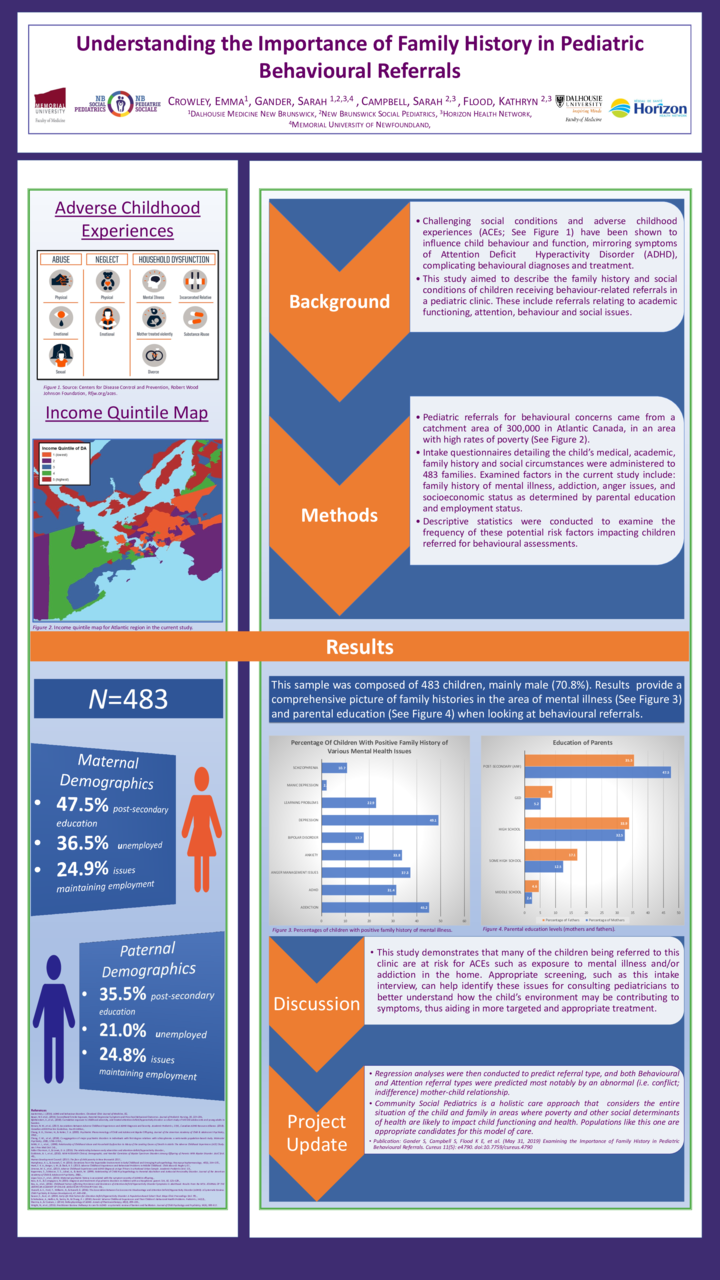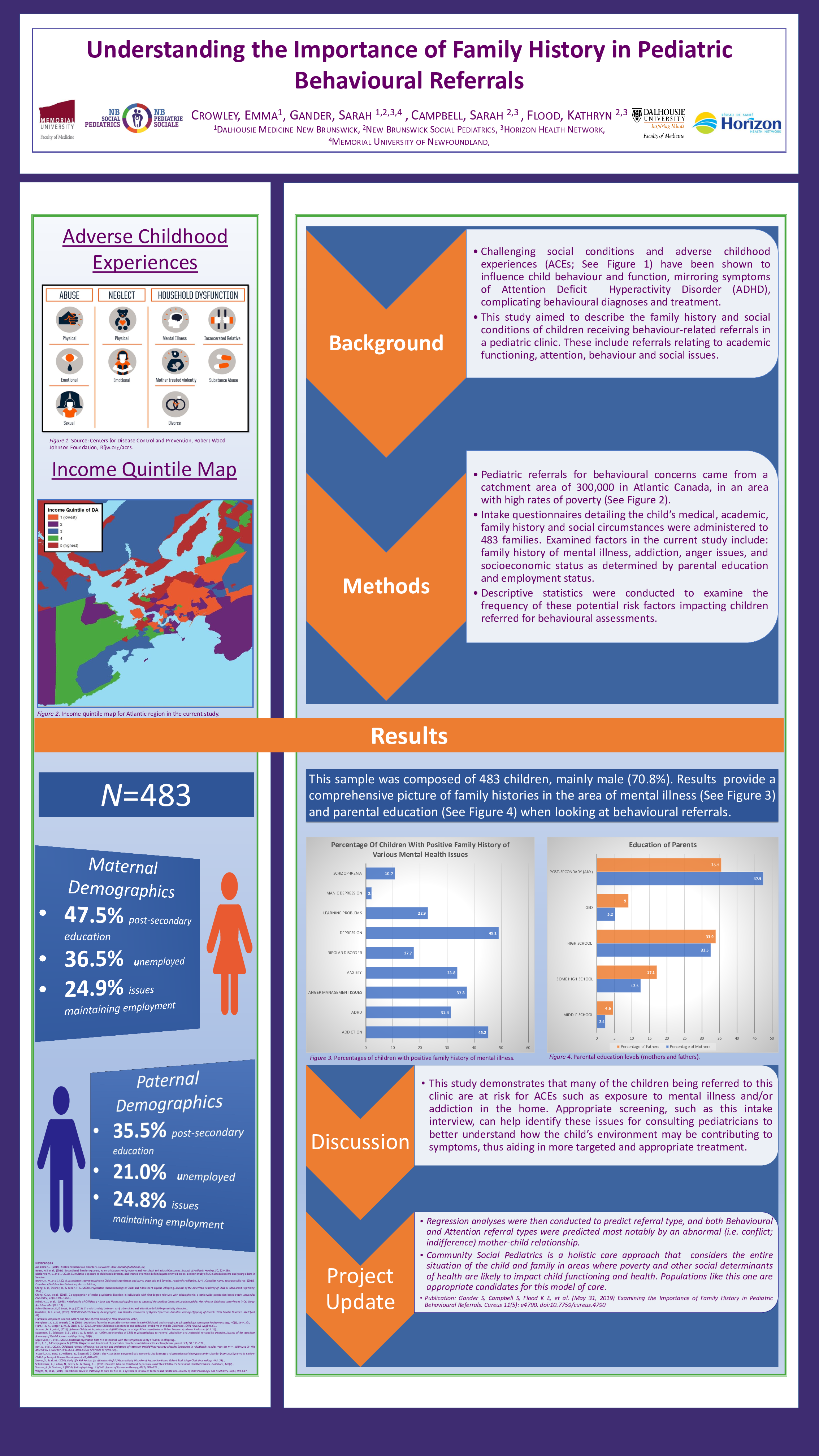Abstract
Background: Attention Deficit Hyperactivity Disorder (ADHD) is reportedly the most common behavioural disorder seen in children. If left untreated over the long-term, the overall prognosis is poor for affected children, especially in terms of academic achievement and social functioning. Unfortunately, social inequities can create significant barriers to accessing timely and appropriate care (e.g., difficulty making appointments due to inconsistent contact information; decreased access to transportation to and from appointments). Further, challenging social conditions and adverse childhood experiences (ACEs) can influence child behaviour and function, complicating accurate diagnosis and effective treatment.
This study aims to describe the family history and social conditions of children receiving behaviour-related referrals in a pediatric clinic. The current study will review information such as family history of mental illness, learning, addiction, and anger issues, parental education level and employment status, and child demographics. It is anticipated that this population is largely composed of families that come from challenging social conditions.
Methods: Data was collected via phone intake interviews of children being referred to pediatricians for behaviour-related referrals. Interview questions pertained to the child’s medical, academic and family history and other factors. Descriptive statistics were conducted to look at the frequency of potential risk factors that may impact children referred for behavioural assessments in terms of access to care, accurate diagnosis and treatment.
Results: The sample was composed of 483 families, where the referred child was most often male (70.8%). Results indicate that a family history of mental illness (including, but not limited to: anxiety, depression, manic depression, schizophrenia, and bipolar disorder) was common among these families at 69.8%, and that 37.7% of families had at least one parent who reported a learning issue. Also common was a family history of addiction (43.5%) and anger issues (36%). Only 12.5% of mothers and 17.1% of fathers reported not having a high school education.
Discussion: There is evidence that children who are exposed to addiction, mental illness and violence will suffer long-term negative health outcomes. In the short term, these factors can impact the child’s behaviour, social functioning and academic achievement. This study demonstrates that many of the children being referred to this clinic are at high-risk for ACEs such as exposure to mental illness, physical or emotional abuse, and addiction in the home. Appropriate screening, such as this intake interview, can help identify these issues for consulting pediatricians to aid in appropriate treatment of this population.





